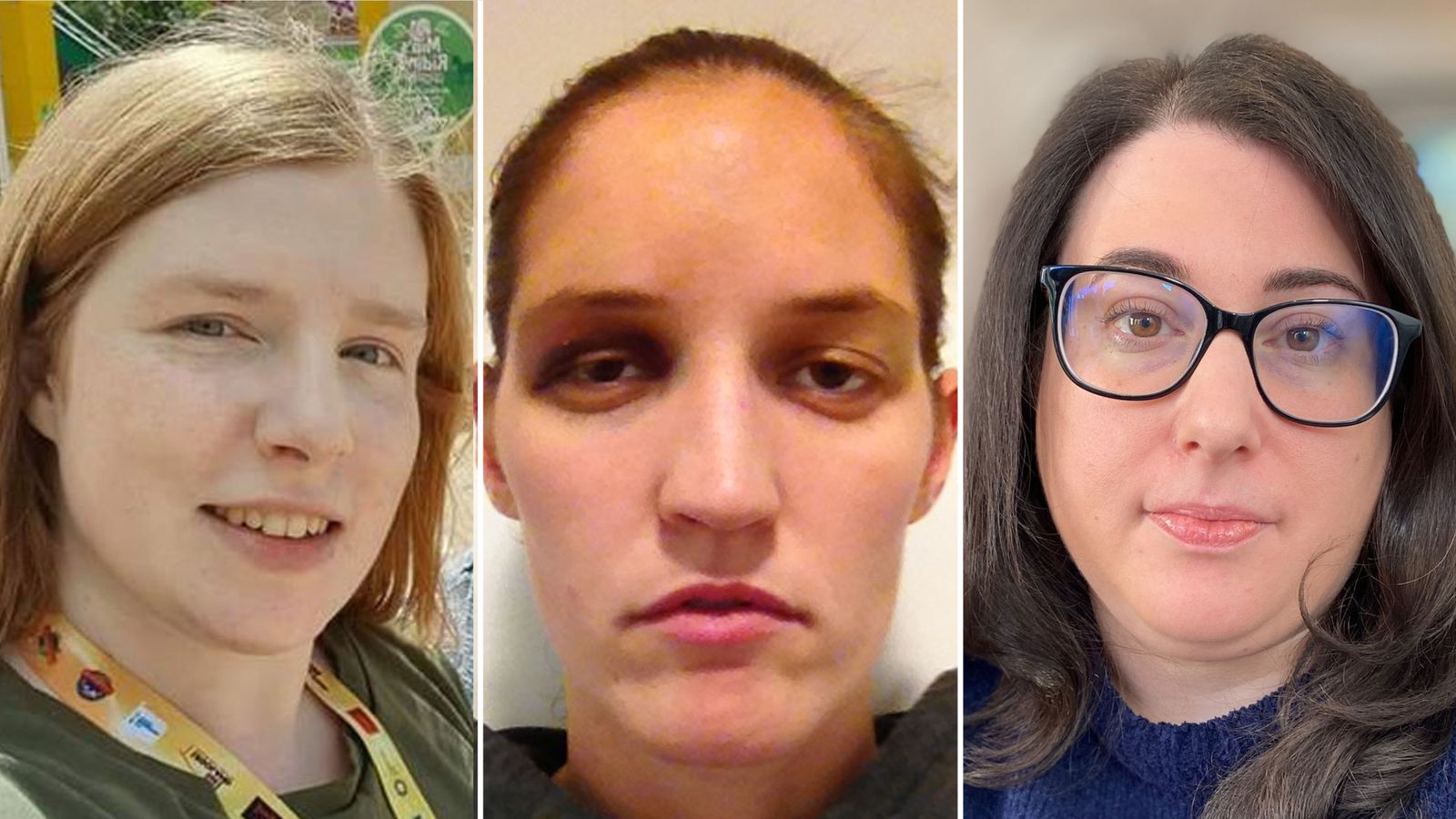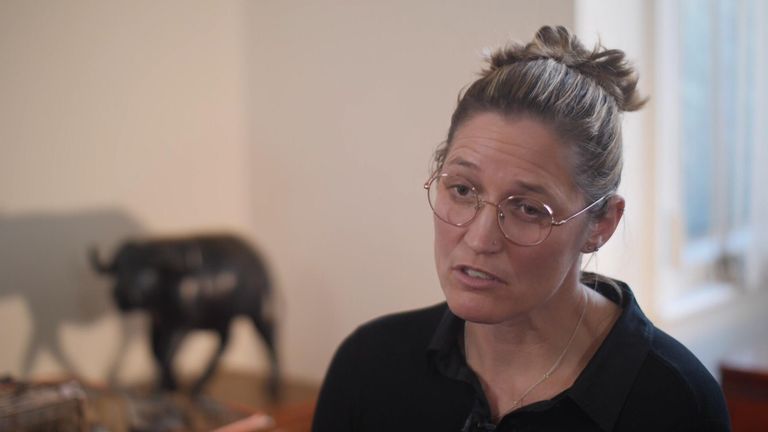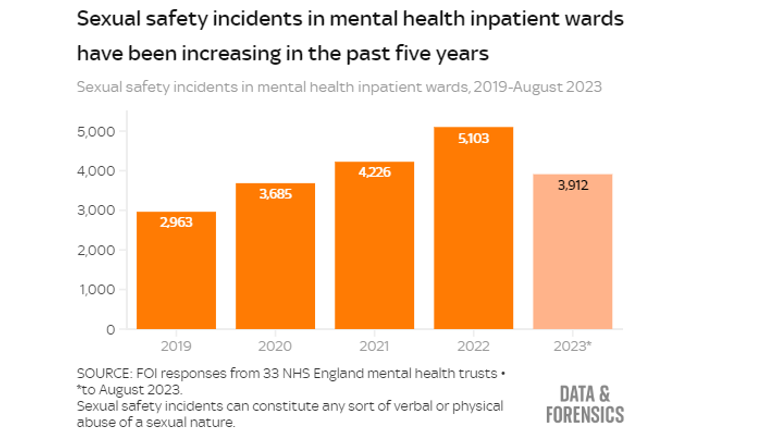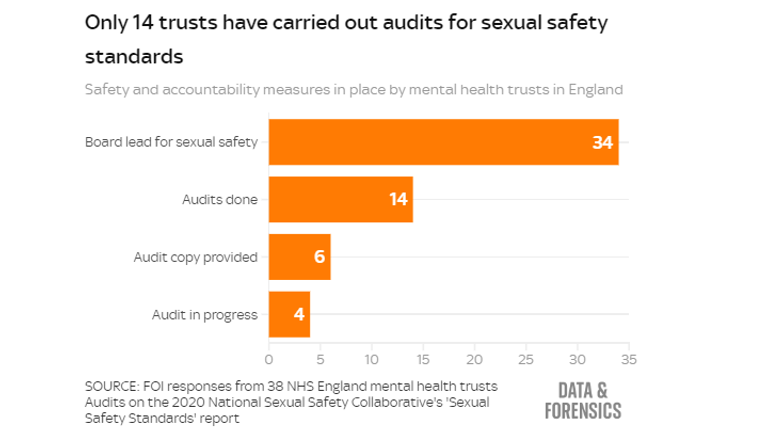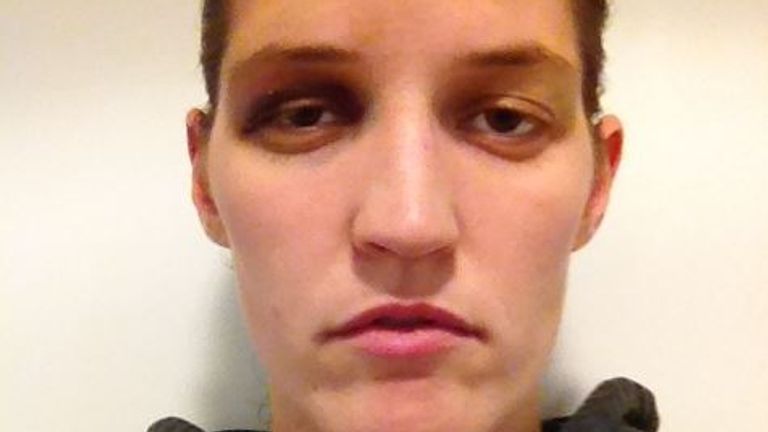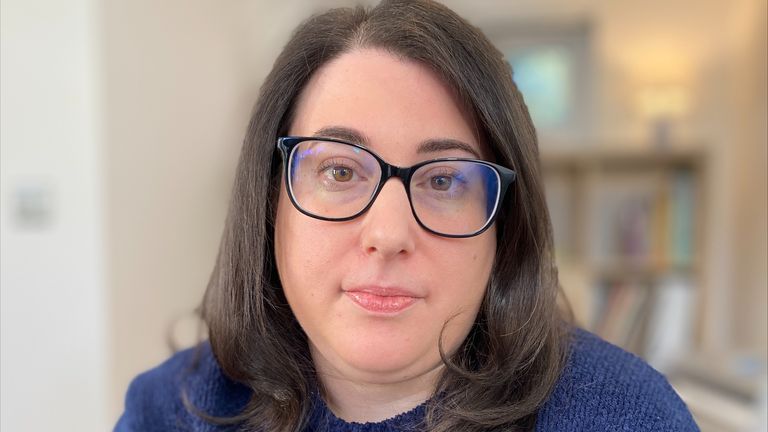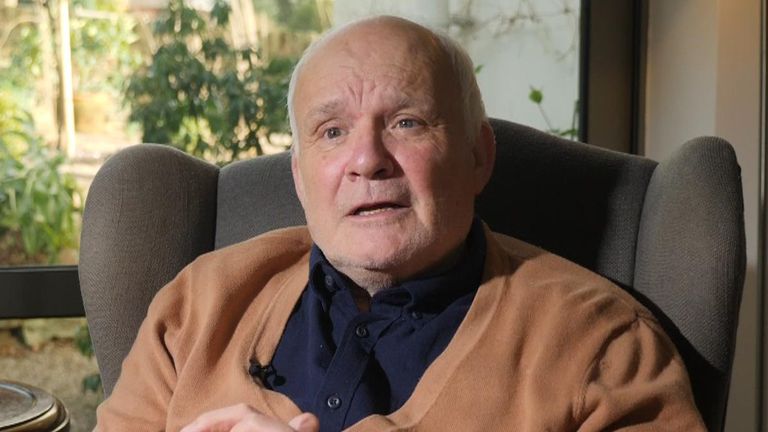Mental health patients have alleged they were raped and sexually assaulted while being treated by the NHS, in what has been described as a “national scandal”.
An investigation by Sky News and The Independent has uncovered nearly 20,000 complaints of sexual assault, abuse and harassment, involving both patients and staff, across more than 30 mental health trusts in England since 2019.
The investigation was sparked by the testimony of Alexis Quinn – a former British youth swimmer whose story is told in the new Sky News podcast Patient 11 – after she escaped from psychiatric care following complaints of sexual assault by male patients.
Click to subscribe to the Patient 11 podcast wherever you get your podcasts
In both instances, Alexis’s alleged attackers faced no criminal action.
Multiple patients and their families have come forward to tell their stories.
They include a law graduate who described how she was sexually assaulted by a male staff member before being moved on to a mixed-gender psychiatric unit.
Meanwhile, a mother-of-two said she was subjected to five months of “horrific” sexual abuse at the hands of a male staff member.
“I thought it was just me,” Alexis told Sky News.
“But it’s not just me – there are thousands of people [like me].”
In 2011, the Department of Health committed to eradicating mixed-sex care across all its inpatient services.
Despite this, more than 12 years on, Sky News and The Independent has identified hundreds of allegations of rape and sexual assault in mixed-sex wards and shared spaces in NHS England psychiatric care.
Following more than 50 freedom of information requests to NHS England mental health trusts, with 38 responses, we can reveal:
• Nearly 20,000 “sexual safety incidents” were reported on inpatient mental health wards between 2019 and 2023 – with the annual figure rising each year
A sexual safety incident is defined as any unwanted sexual behaviour that makes a person feel uncomfortable or unsafe. This includes rape, sexual assault, sexual harassment, comments of a sexual nature or observing sexual behaviour, including exposure to nakedness.
• Nearly 4,000 sexual safety incidents were reported between January and August 2023 – higher than the annual total for both 2019 and 2020
• That trusts are largely failing to apply 2020 government-backed sexual safeguarding protections, with only six authorities demonstrating that they are doing so
A separate FOI request conducted by The Independent revealed:
• More than 800 allegations of sexual assault and rape involving female patients across more than 20 trusts between 2019 and 2023 – only 95 of which were reported to the police
• More than 500 allegations of sexual assault and rape in mixed male and female NHS England psychiatric inpatient settings, across more than 20 trusts
The findings have been described as a “national scandal” by former Victim’s Commissioner Dame Vera Baird.
Meanwhile, Dr Lade Smith, president of the Royal College of Psychiatrists, said: “The horrendous findings show that there is still much to do to make sure that patients and staff in mental health trusts are protected from sexual harms at all times.
“It is deeply troubling to see that so few incidents in mental health settings go unreported.”
Labour’s shadow health secretary Wes Streeting said it was “chilling” that these “horrific” alleged crimes were reported to have taken place in the NHS.
“Very serious questions must urgently be asked of hospital leaders, who have to explain why the vast majority of these incidents were kept from the police,” he added.
“NHS England must explain why so few trusts have implemented sexual safeguarding protections designed to keep patients safe.
“The government must treat this investigation as a wake-up call and act against the soaring number of mixed-sex wards in the NHS today.”
‘He started to touch me on my breasts’
In 2012, Alexis – a mother who worked as a teacher – entered care following the death of her brother.
Undiagnosed with autism, she complained of a sexual assault by a male patient at Kent’s Littlebrook hospital on Christmas Day in 2013 after she was placed on an all-male ward.
“I was in such a bad way… it was Christmas Day and I wasn’t with my little girl,” she said.
“He pressed me up against the door and lifted my top up. And he started to touch me on my breasts and then pulled my trousers down.
“All I could hear was his breathing and everything was slow and really loud and [I remember] not being able to move and being stuck.”
In a letter to her family in early 2014, Kent and Medway NHS Trust said Alexis “should not have been admitted as the sole female patient on a ward with other male patients” and committed to her safeguarding.
But just months later in 2014, Alexis made a second complaint after being moved to yet another mixed-gender care setting at St Martin’s Hospital in Kent.
The University of Edinburgh graduate said: “I was getting some treatment in a treatment room with a female nurse.
“I’d just come in from a run so I was wearing running shorts and a running vest top and a male patient came into the treatment room and started groping me on my breasts and on my bum.”
Addressing the second complaint, Kent and Medway NHS Trust said it was “unfortunate that incidents like these occur due to the acute nature of the patients admitted” to the ward.
Alexis’s alleged attackers faced no criminal action because they were deemed “not to have the capacity to go through a police investigation,” according to her mother Linda.
Kent and Medway NHS Trust told Sky News it has eradicated mixed wards, adding: “We continue to offer out sincerest apologies to Alexis for the unacceptable behaviour she experienced when she was in our care.”
Sectioned under the Mental Health Act and legally detained, Alexis spent almost four years in largely locked-in care environments, including the now-closed Milton Park Therapeutic Campus in Bedfordshire, where she said she had to shower in front of male staff members.
‘I felt sick… and I just cried’
Like Alexis, autism patient Rivkah Grant said she found herself exposed to mixed-gender NHS mental health inpatient settings when battling depression.
The 34-year-old law graduate, originally from Enfield, north London, said she was sexually assaulted by a male healthcare worker while on a female ward at Chase Farm Hospital in 2016.
“There was one staff member and he seemed really nice and supportive,” she told Sky News and The Independent.
“I didn’t realise at the time that this was a bad thing – that he was in my room when I was by myself in the night with the door shut.”
She described being sexually assaulted by the staff member, saying: “He said to me that I must promise not to tell anyone, [or] he’d lose his job.
“I felt sick and I suddenly felt it all – what has happened? And I just cried.”
Following the incident, Rivkah said she was moved to a mixed-sex ward, despite having told staff she’d been sexually assaulted.
Her attacker was convicted in June 2017 following a police investigation.
‘There is no safety in mental health hospitals’
North London Mental Health Partnership, which now runs Chase Farm Hospital, said the safety of its users is the top priority and that it is “deeply sorry” for what happened to Rivkah.
It said it has since strengthened its safeguarding process.
“I thought I was in a safe place,” Rivkah said. “And you believe you when you’re in a hospital, you should be safe. You’re in a place where there’s 24/7 care.
“And unfortunately, obviously, I’ve learned that there is no safety in mental health hospitals.
“I know I’m not the only person who has been through it.”
In 2020, after the Care Quality Commission raised national concerns over sexual abuse in mental health services, the NHS set up new guidelines under its “sexual safety collaboratives”.
Just six trusts have provided evidence they have met the collaboratives’ guidelines, in response to Sky News’ FOI requests.
‘He’s a sexual predator’
In 2015, Stephanie Tutty sought help from Essex mental health services while dealing with the trauma of a rape she suffered in her youth.
While under the care of Essex Partnership University NHS Foundation Trust, the 28-year old mother-of-two said she suffered repeated sexual abuse by a male staff member over a five-month period.
After a two-year investigation, she said she was told by police in 2017 that her case could not proceed due to the low likelihood of conviction.
She said: “What happened with [the alleged abuser] will always have a lasting impact on me, even more so than the first rape that made me unwell in the first place.
“He is a predator, with no other words for him – he’s a sexual predator.”
Essex Partnership University NHS Foundation Trust told Sky News and The Independent that reports like Stephanie’s are immediately referred to the safeguarding team and fully investigated.
Charlie Brooker, honorary professor of criminology and mental health at London’s Royal Holloway University, has examined the relationship between sexual assault and mental illness.
He told Sky News and The Independent there should now be an inquiry into sexual safety in mental health wards.
He said: “If an inquiry was set up to look at sexual safety in mental health inpatient wards – because in my opinion, it should be – it would be fascinating to see how many people came forward and wanted to give evidence.
“I won’t be at all surprised if it wasn’t several thousand.”
What has the NHS and the government said?
In a statement, NHS England said: “We are taking action to ensure the safety of patients and staff, including rolling out better reporting mechanisms, training and support as part of the NHS’s new Sexual Safety Charter.
“NHS England has advised all Trusts and local health systems to appoint a domestic abuse and sexual violence lead to support patients and staff to report incidents and access support, with more than 300 now in place.”
NHS England went on to cite its commitment to the 2020 government-backed sexual safety protections, despite only six trusts demonstrating their application.
A Department of Health spokesperson said: “Sexual violence or misconduct of any kind is unacceptable and has no place in the NHS, and NHS organisations have a responsibility to protect both staff and patients.
“We are working closely with the NHS to ensure anyone receiving treatment in a mental health facility receives safe, high-quality care, and is looked after with dignity and respect.”
